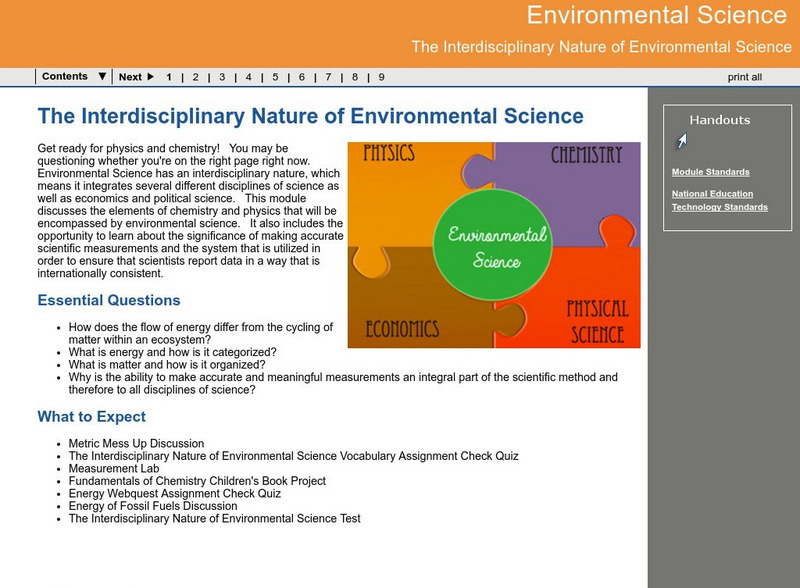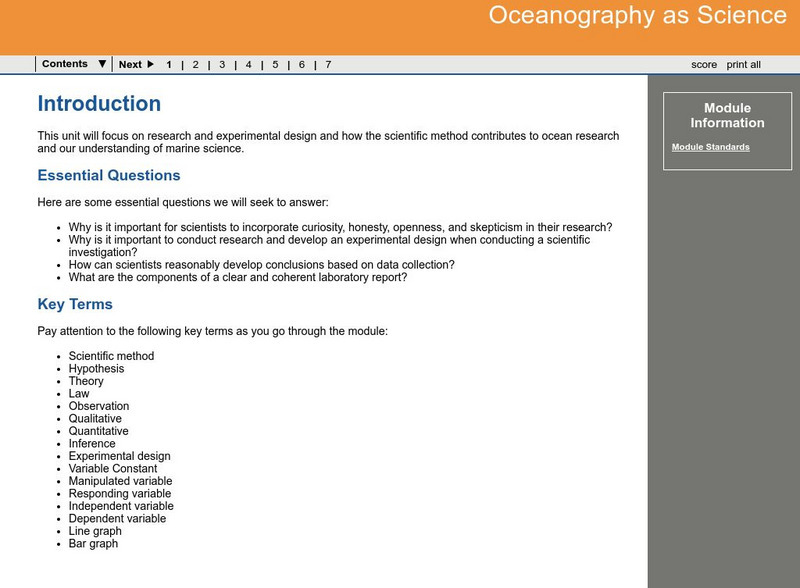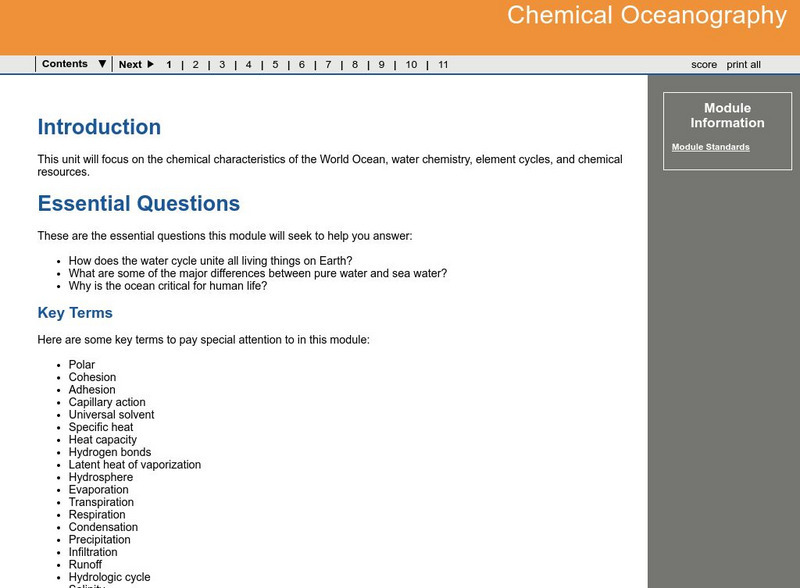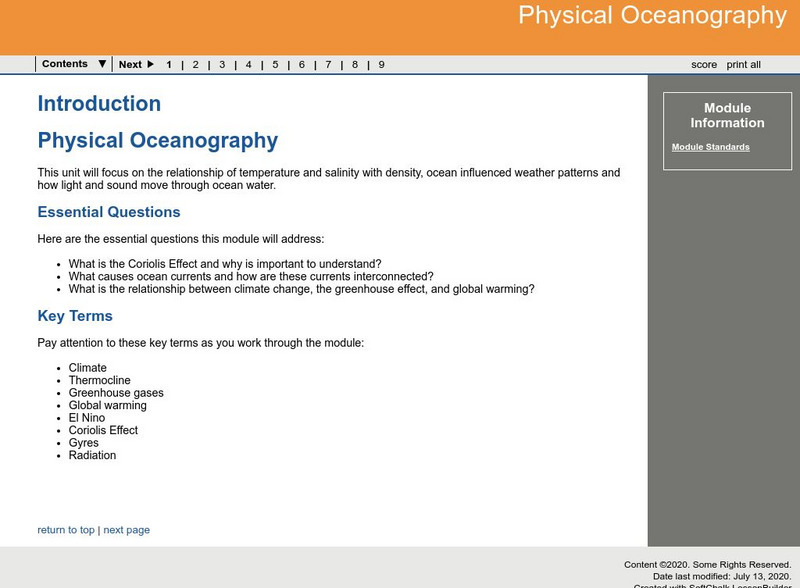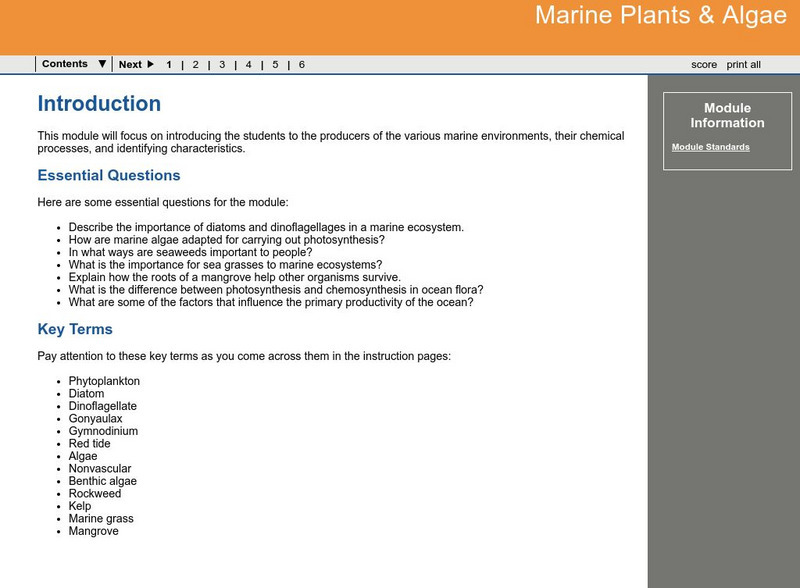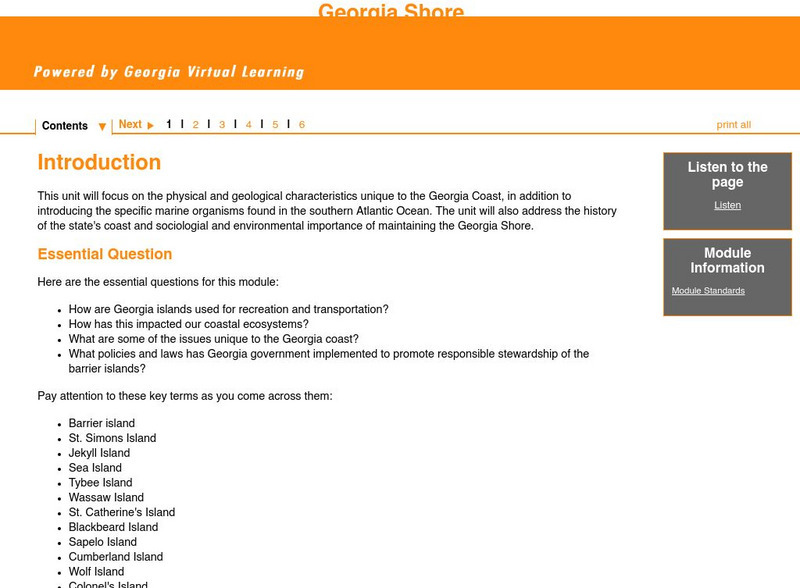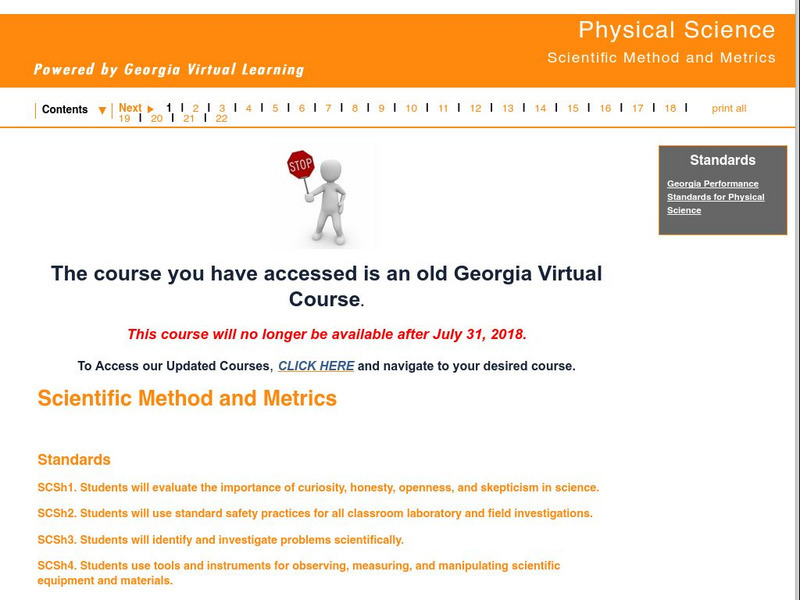Georgia Department of Education
Ga Virtual Learning: Anatomy and Physiology: Cardiopulmonary Sys Transportation
Through informational text along with printable notes, animations, video clips, and practice problems, students discover how the structures of the cardiovascular and respiratory systems work together and function as one. Provides lots of...
Georgia Department of Education
Ga Virtual Learning: Chemistry: Gas Laws
Through informational text, interactive practice problems, virtual simulations, and video clips, students learn about the gas laws.
Georgia Department of Education
Ga Virtual Learning: Chemistry: Solutions
In this module, students study solutions; how they are formed, how to calculate concentration of solutions, and what the colligative properties of solutions are.
Georgia Department of Education
Ga Virtual Learning: Chemistry: Acids, Bases, and Salts
An interactive module where students build upon the discussion of solutions, but specifically concentrate on special types of solutions, acids and bases.
Georgia Department of Education
Ga Virtual Learning: Chemistry: Kinetics and Equilibrium
Through informational text, interactive practice problems, virtual simulations, and video clips, students learn about reaction rates and equilibrium.
Georgia Department of Education
Ga Virtual Learning: Introduction to Environmental Science
With this collection of video tutorials and student assignments, students learn about the interdisciplinary science that focuses primarily on solving environmental problems.
Georgia Department of Education
Ga Virtual Learning: The Interdisciplinary Nature of Environmental Science
This interactive module gives students the opportunity to study how environmental science integrates several different disciplines of science as well as economics and political science.
Georgia Department of Education
Ga Virtual Learning: Ecosystems
This module offers an in depth study of the fundamental components of ecosystems. Activities include mini-lessons with videos and student assignments.
Georgia Department of Education
Ga Virtual Learning: Types of Ecosystems: Biomes
Twenty-two essential questions lead student learning about the distinctive climate zones and biomes around the globe.
Georgia Department of Education
Ga Virtual Learning: Air, Atmosphere, and Climate Change
Sixteen essential questions lead student learning about Earth's atmosphere and global warming as they have to do with global climate change.
Georgia Department of Education
Ga Virtual Learning: Environmental Science: Mineral and Energy Resources
Students explore the topics of mineral extraction, renewable and nonrenewable resources, and hazardous wastes in this comprehensive, interactive module.
Georgia Department of Education
Ga Virtual Learning: Introduction to Oceanography
Students focus on the four branches of oceanography; chemical, geological, physical and marine oceanography, and how the scientific method contributes to ocean research and our understanding of marine science.
Georgia Department of Education
Ga Virtual Learning: Oceanography as Science
Students study research and experimental design and how the scientific method contributes to ocean research and our understanding of marine science.
Georgia Department of Education
Ga Virtual Learning: Geological Oceanography
This unit will focus on the geological characteristics of the world ocean, plate tectonics, and the mapping of the ocean floor.
Georgia Department of Education
Ga Virtual Learning: Chemical Oceanography
Students study the chemical characteristics of the World Ocean, water chemistry, element cycles, and chemical resources in this multi-media learning module.
Georgia Department of Education
Ga Virtual Learning: Physical Oceanography
A student learning module with a focus on the relationship of temperature and salinity with density, ocean-influenced weather patterns, and how light and sound move through ocean water.
Georgia Department of Education
Ga Virtual Learning: Moving Water
Students learn about surface currents, wave characteristics, and the forces that cause tides in the World Ocean.
Georgia Department of Education
Ga Virtual Learning: Coastal Ecosystems
Students are introduced to the various marine environments, their unique formations, origin and identifying characteristics.
Georgia Department of Education
Ga Virtual Learning: Marine Plants & Algae
Students are introduced to the producers of the various marine environments, their chemical processes, and identifying characteristics.
Georgia Department of Education
Ga Virtual Learning: Marine Invertebrates
Students learn about invertebrates found in the ocean, their individual methods of adaptations, identifying characteristics, and contributions to the marine ecosystem.
Georgia Department of Education
Ga Virtual Learning: Georgia Shore
Find out about the physical and geological characteristics unique to the Georgia Coast, in addition to the specific marine organisms found in the southern Atlantic Ocean. Also learn the history of the state's coast and sociological and...
Georgia Department of Education
Ga Virtual Learning: Physical Science: Scientific Method and Metrics
Students have the opportunity to review the scientific method, become familiar with vocabulary terms associated with scientific investigation, and learn about real-world scientific examples where the method is used.
Georgia Department of Education
Ga Virtual Learning: Physical Science: Force and Motion
In this student-paced module, students apply Newton's Laws of Motion to everyday life, calculate mathematical relationships involving force and motion using algebraic formulas, and understand the difference between mass and weight.
Georgia Department of Education
Ga Virtual Learning: Physical Science: Work and Energy
Find out about simple machines, calculate the mechanical advantage and efficiency of machines, differentiate potential and kinetic energy, and learn ways to use energy more efficiently.








